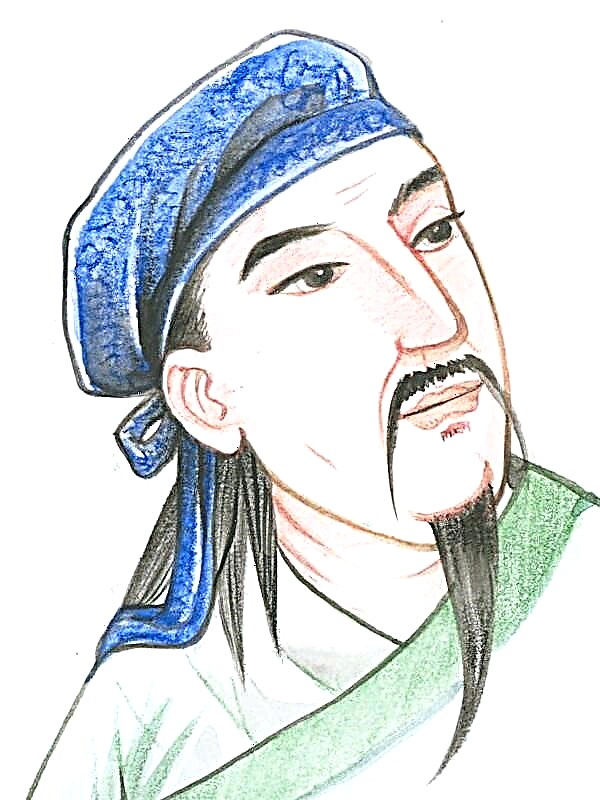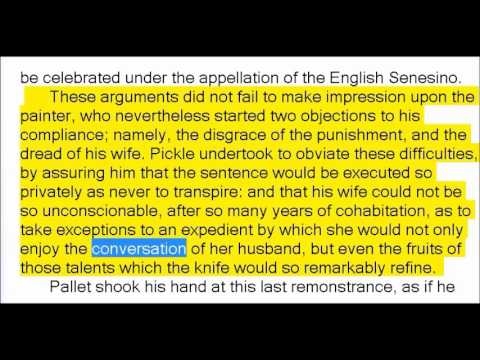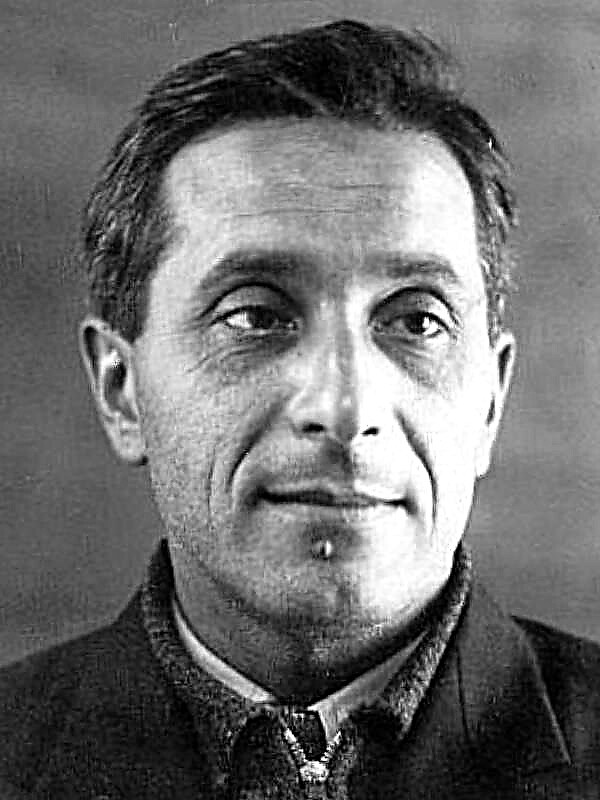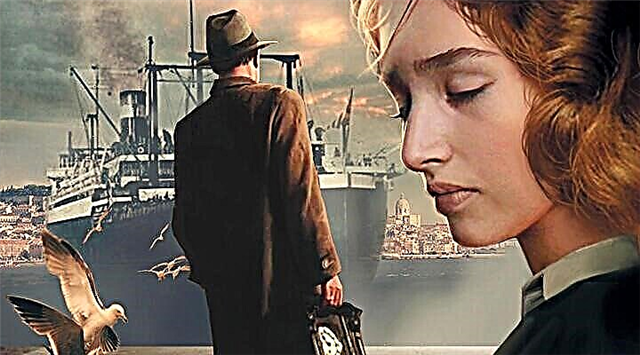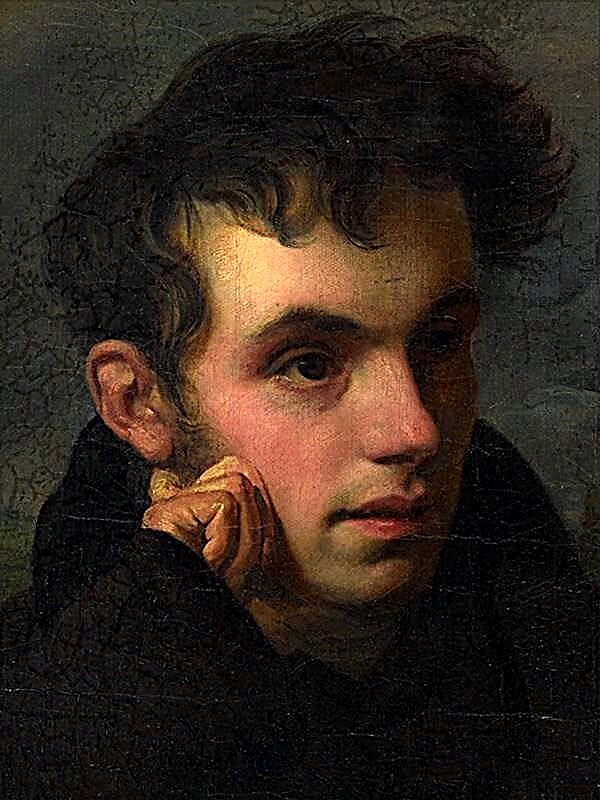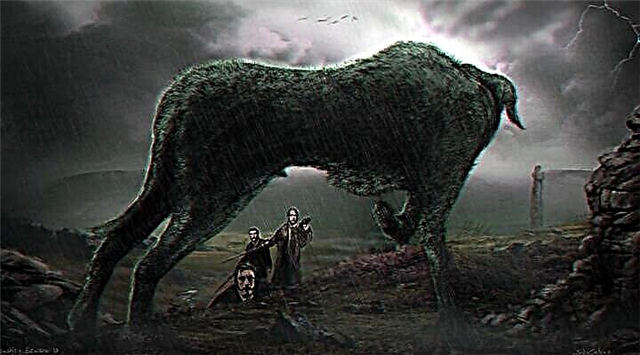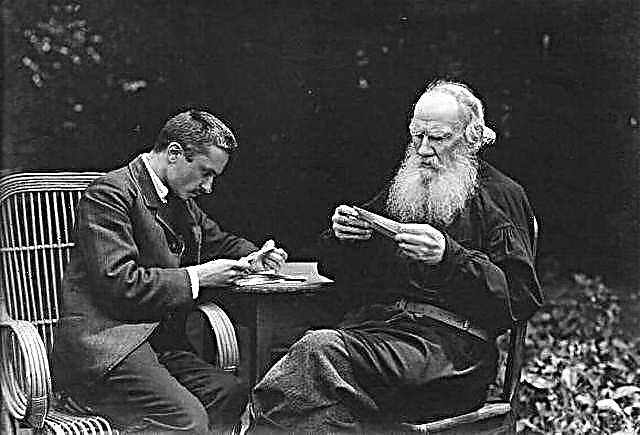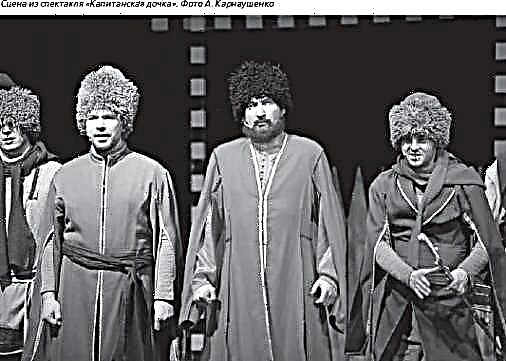: A sixth grader talks about his family. He really loves the beautiful mother, dad - a talented surgeon, grouchy grandmother and tries to make sure that they never quarrel.
The narration is on behalf of a sixth-grader boy.
It's not my business
The narrator went to the same school where his parents once studied. Teacher didn’t remember dad, but many remembered mom. A literature teacher said that she "had excellent external data." Mom’s “internal data” was no worse - she never played hockey with tin cans and didn’t cut into the “locker room”.
The boy learned details about his mother’s past from his grandmother, who often came to help with the housework. Grandmother brought up the narrator and his dad, citing other people as an example. For example, she reported that her neighbor’s son learned to cook soup, and dad’s fellow student became the head of the department. This meant that the storyteller would also do well to learn how to cook, and it was time for dad to become a department.
And now my grandmother said that Seryozha Potapov, a gifted graduate of a music school, in whom mother was in love in the fifth grade, “took a long step.” This meant that dad should also "go far." Grandma, who had not undergone a single operation in sixty years, did not care that Dad was a wonderful surgeon who saved someone’s life every day.
Dad fell in love with his mother at school, and it was unpleasant for him to remember Seryozha Potapov. The boy decided to do everything so that mom would not meet with the musician. When Potapov’s speeches were broadcast on television or radio, he arranged to do homework in the room where they stood, and the receivers immediately turned off. Then the boy saw a poster with a portrait of Potapov at a tram stop with which his parents left for work every morning, and convinced them to ride a trolley bus. Then the narrator asked the violinist friend to tell everyone that he had not heard of any Potapov.
“But Mom’s past didn’t give up” - two invitations came to parents from school for a traditional graduation evening, where Potapov will speak. The boy hid the invitations, but mom found out about it and was very upset - both she and dad really wanted to meet with school friends.
The narrator could not explain why he did this, and his mother attributed everything to his indifference. The only consolation for him was that his mother never met with Potapov. From an unpleasant conversation the boy was saved by her grandmother, who stated that her neighbor’s son got five and learned to cook compote.
Distant relative
Sometimes at night in the storyteller’s house phone calls are heard - these are former father’s patients or fellow students who call for help. Dad never refuses anyone. Sometimes it turns out that the caller arrives in the city and has nowhere to stop. Then the guest sleeps in the cot in the kitchen.
One day, a relative so distant called her dad that he could not remember who she had to her.
A distant relative is even less than just a friend. A friend, for example, is impossible to know in person. And you can never see or hear a distant relative in your life.
The son of this woman found a tumor. She cried, asked to help "her boy", and dad could not refuse. The “boy” turned out to be a man of about thirty named Ignatius. He did not believe that he had “the same disease” and only came to reassure his mother, whom the doctors had told about the “alleged diagnosis”. Mother raised Ignatius alone, without a husband, barely waited for her son to graduate from college. Ignatius considered this disease "terrible ingratitude" on his part.
The next day, the storyteller and grandmother waited for Dad’s call - he had to report the results of Ignatius’s examination. Finally, they learned that Ignatius was seriously ill, he needed an operation, but he didn’t have “this,” and breathed a sigh of relief.
Soon the mother of Ignatius called, and the narrator was the first to inform her that her only son did not have cancer. And the woman cried.
At school, the narrator often wrote essays on the topic "Who should I be?" Each time he took a new profession, so as not to repeat itself. In fact, the boy had not yet decided who he would become, but after the incident with Ignatius, he thought how pleasant it was to leave the operating room and tiredly say to someone’s mother: “He will live.”
The happiest day
For the winter holidays, teacher Valentina Georgieva gave an assignment - an essay on the theme “My happiest day”. The narrator’s parents met New Year’s with friends, returned home late, and in the morning the boy discovered that they had a serious quarrel. Mom and Dad walked quietly, did not talk to each other, and at home it was so calm and quiet that the storyteller got sick of going to the Christmas tree.
Parents tried so that their quarrel did not affect their son, so instead of a Christmas tree they began vying to offer him other entertainments. The boy could get anything from them, but he only wanted one thing - so that his parents reconciled.
Grandmother left for one of her school friends and could not help, so the narrator decided to act on his own. He heard somewhere, "that joy and sorrow unite people."
Of course, delivering joy is more difficult than grief. To make a person happy, make him happy, you have to work hard, search, try. And to spoil the mood is easiest!
The narrator decided to start with joy. The “five” in geometry could please parents most of all, but they don’t get marks during the holidays, and the storyteller decided to do a spring cleaning. The apartment was clean before the cleaning, so the boy did not so much wash the floor, but he himself got dirty. To the fact that the storyteller got up at seven in the morning and did exercises with a cold wipe, they, too, were not happy together, "but somehow apart, alone."
Then the boy decided to unite his parents with grief. He could not get seriously ill by order, so he decided to get lost and went to his friend Zhenya, who knew how to keep secrets and assured everyone: "I am the grave." Friends called Zhenya the Grave.
To make his parents anxious, the narrator asked Zhenya to call his parents every five minutes and say that he had not yet arrived. An hour later, the parents went crazy with anxiety for their son. The teller did not want to torment them further and ran home. Parents sat in the hallway near the phone and looked into each other's eyes. Seeing his son unharmed, they began to hug him, and then each other.
It was the happiest day of the winter holidays. And in the essay, the boy wrote about a trip to the Tretyakov Gallery, although he was there a year and a half ago.
February 29th
“Love ennobles a person,” but the narrator did not notice this. Since he fell in love, he had to lie all the time. To the mother’s question why he combed his hair and changed his shirts so often, the boy replied that the school had a health commission, and explained the constant deuces to absent-mindedness. In fact, in the lessons, the narrator was thinking about Lila Tarasova, who transferred to them from another school.
When he first saw Lily, the narrator “lost consciousness for a moment,” and then really wanted to “appear in a favorable light”. She couldn’t get the “five” in her eyes - only the “deuces” came out, but the boy skated well, so he decided to invite Lily to the ice rink.
Lily was unlike the others, even her briefcase, notebooks and pens were neat and elegant, and the girl knew this. She agreed to go to the rink on Sunday, February 29, but first the narrator had to earn this right - to pass the tests.
First, the narrator had to take the book to Vale's neighbor, with whom Lily had a falling out.Valya, who turned out to be a handsome and tall guy of about fourteen, called the narrator Lilin's Page.
Tall and beautiful people can ask any questions.
At home, they quickly realized that the boy fell in love. Grandmother tried to re-educate him, saying that her neighbor’s son decided to think “about the rest” only after graduation, and his mother, having fallen in love with Seryozha Potapov, became an excellent student. But the storyteller didn’t succeed in becoming an excellent student, and it was probably too late to invite Lily to the rink after graduation.
The storyteller needed to consult with someone, and he went to the geological student Jura, who lives in the next entrance. Once Yura was seriously ill. His parents, also geologists, were on an expedition, and the narrator took care of Yura, risking infection. Since then, the boy came to him for advice. Having learned about the difficulties of the narrator, Yura laughed and said that love in the sixth grade is not serious, and everything will dissipate itself “like smoke, like morning fog”.
A week later, Lilya told the storyteller to be on duty at her entrance two hours a day, in case she needed anything. The boy was on duty along with his classmate Vladik Babkin, who also passed the tests. They went with Lily to the store or to the market, carried bags behind her, and Valya, playing hockey in the courtyard, called them "either" an honorary escort ", then" musical accompaniment ", then" sticky ones "." The narrator was silent and waited patiently on February 29.
On Saturday, February 28, Lily announced that someone should remain alone, and the boys “must solve this in a fair fight, like men”, and when the fight started, she called Valya to separate them. Seeing the narrator’s broken nose, Valya looked at Lilya "not with respect, not even somehow even more seriously."
In the evening, the story-teller called Leela to arrange a trip to the ice rink, but she said that this year is a leap year, she is not on February 29, and she is busy on Sunday March 1. The next morning, the narrator saw how Lily went to the rink with Valya.
You need to love only that person who is worthy of love.
Yura was still sure that this would pass, but for the storyteller everything was so serious that he did not think anything and the next day he again received the “deuce”.
How is your health?
Grandmother considered dad to be a failure and constantly cited the example of his institute comrades, who, as luck would have it, all became professors, chief physicians and candidates of sciences. After the grandmother's speeches, it became clear to everyone that Dad was behind, and sad silence reigned in the apartment.
Mom reproachfully said that daddy's comrades still bring their dissertations to him for verification, although they get creative leave to create them, and Dad himself has not had a rest for three years. If only he took sick leave for a week ...
Mom’s wish came true - dad got the flu. When he took sick leave, strangers called for days on end, excitedly asked about his health, offered to buy any medicine, if only dad would recover faster. Mom was pleased with these calls, and grandmother was surprised - they both did not expect that so many people care about daddy's health. The narrator began to call them to the phone so that they themselves could hear everything.
Dad did not have a high temperature, but once a storyteller told everyone all day that his forehead was hot and his thermometer was broken. In the evening, strangers brought three thermometers.
Grandmother finally admitted that Potapov is far from dad, who saves human lives. The narrator thought about the flu viruses with tenderness and was determined to get sick if he was underestimated.
Egorov
Dad always told his son about everything, even that from the fourth grade he only loves his mother and almost physically feels the suffering of his patients. The narrator knew about all the experiences of his father, the details of the heavy operations that he carried out, and the names of all his patients.
Relatives of patients often called dad home, and he supported them.
Close people sometimes endure the operation more difficult than the sick themselves ‹...›. After all, they are not given anesthesia.
Dad believed that “you can’t invade someone else’s life without knowing it,” therefore, he always knew everything about the life of those whom he operated on. In order not to worry mom and grandmother, dad did not show that he was worried about a complicated operation. Only his son noticed this and always called the clinic to find out how everything went.
One day, dad came home neither sad nor cheerful - nothing, and told his son that he had a patient, fifty-seven-year-old Egorov Ivan Pavlovich, who died - after the operation, a blood clot suddenly formed and clogged the vessel.
Together with dad, the narrator went to inform Yegorov's seventy-eight-year-old mother about the death of his son. In the courtyard they learned that Ivan Pavlovich, a former school teacher, was respected and listened to by all local hooligans, and the neighbors spoke very respectfully of Yegorov.
They did not know the apartment numbers. A woman with heavy bags showed where he lives. The narrator climbed the stairs, and the word “live” pounded in his ears ...
"Adult" evening
A person can be considered an adult when, instead of matinees, they begin to invite him to the evenings.
Dad took the narrator to the festive evening, which was arranged in the clinic. Dad's colleagues were surprised that he had such a big son. Everyone thought the storyteller was like a father, although her mother, a very beautiful woman, thought her son was like her.
Grandmother often said that it’s hard to call dad handsome, but for men, appearance does not matter much. The narrator was convinced of this, watching how, in the evening, all women took turns approaching dad.
When the solemn part began, dad was invited to the podium, and everyone applauded loudly. Dad read the report, and he was praised by an old woman sitting near the narrator with stern eyes. Then the former patients performed, many of which were cured by dad.
The huge man, whom everyone called Andryusha, stood out especially. The narrator heard about him from dad and knew that he had put him on his feet. Andryusha said that he works and plays hockey only thanks to the doctor, while dad hid behind someone's back and tried to become as inconspicuous as possible.
The narrator was sure that many would not like it if they would praise him at the school meeting, but then all the doctors, nurses and nannies were happy for dad. Then there was a concert, followed by dances. Women invited dad to dance, but he did not give up, and the storyteller wished that mom and grandmother did not see all this.
Dad did not send his son home ahead of time, and the narrator went into the wardrobe with everyone. Then a panting man in a white coat urgently called dad to the patient, and he asked Andrei to take his son home.
Andryusha was happy all the way, looking at the streets decorated for the holiday, “as if there was a time when he no longer hoped to see them.” Near the house, he said that the boy looked like his father, as if he had awarded. The narrator thought that he looked like dad only outwardly, and it’s very difficult to become like him for real, “after all, it’s not so easy to make others happy.”


